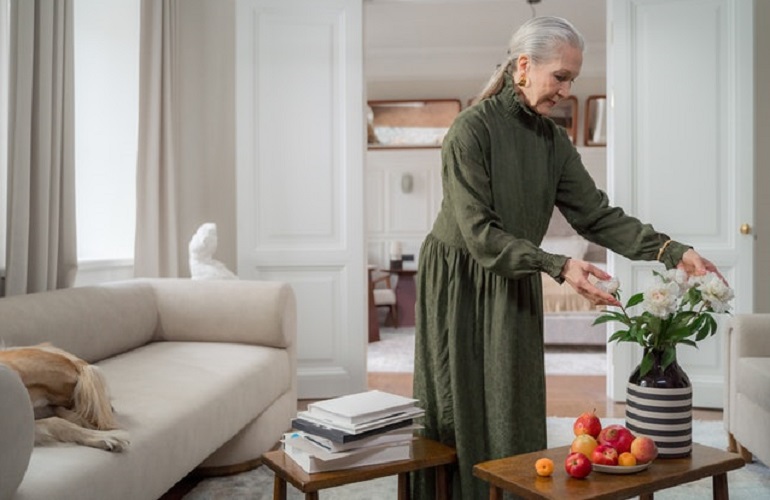Do you have elderly relatives? If so, you probably know how difficult it can be to watch them every minute of the day – but some precautions can help.
With no one around to look after them, seniors are at greater risk for falls and injuries, and then there’s house fire or robbery; those potential hazards can become a reality without any warning or notice.
How can we make homes safer for seniors?
The good news is that there are many ways to make your house safer for elderly people so that they can maintain an independent living for as long as possible. Here are 10 tips you can follow to ensure the safety of your loved ones when they’re in your care:
1) Install handrails and grab bars in their bathroom and shower area.
2) Keep nightlights on in the bathroom and their bedroom, so they can move around without tripping or injuring themselves.
3) Ensure that all flooring is slip-proof (like linoleum) or rugs won’t slip on the floor when they walk around.
4) Make sure all electrical outlets have protective caps.
5) Provide a portable phone that they can carry with them, just in case they fall or need help.
6) Make sure there is always a fully functioning fire extinguisher handy in the kitchen, near their bedroom, and all places where there might be a risk for fire.
7) Place locks on all cabinets so that kids or grandchildren don’t get into medications. (they should not be taking any type of medication except the ones prescribed by their Doctor.)
8) Buy those large, plastic containers with lids to put their food in. They are easy for them to open and close so that they can help eat by themselves whenever required.
9) Carefully consider the placement and storage of their furniture. Don’t put wooden furniture closer to the fireplace, for example, and make sure there is nothing fragile or breakable on low-lying tables.
10) Test the fire extinguisher, test the smoke detectors, and test their carbon monoxide detectors.
Following the above tips will help. However, the most important piece of advice follows:
Don’t forget about yourself!
Many carers will tell you that one of the most important things you can do for your senior loved one is to care for yourself. This is the only way that you will be able to cope with the pressures and emotions brought up by seeing an elderly relative physically decline and possibly suffer from cognitive decline or dementia.
If you are experiencing any of the following symptoms, it may be time to seek help and make sure that trained professionals monitor your elderly relative.
Burnout
memory loss, irritability, social withdrawal, or apathy are all symptoms of burnout that can impact your health and will definitely make caring for your relative harder, if not impossible.
The emotional and physical stress of caring for someone with aging parents and other elderly relatives can be draining. It’s important to look after your own emotional wellbeing through family and professional support, time off, or respite care.
By having the right precautions in place, you can ensure that your elderly relative stays safe while living independently at home. This is your best bet for their long-term wellbeing and safety.

